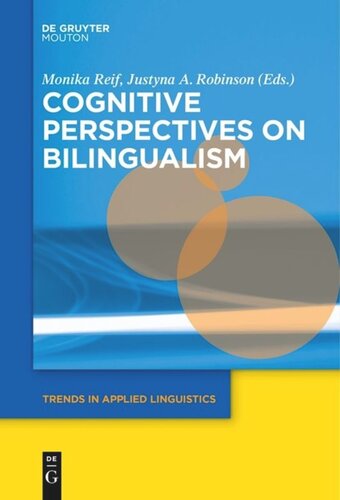

Most ebook files are in PDF format, so you can easily read them using various software such as Foxit Reader or directly on the Google Chrome browser.
Some ebook files are released by publishers in other formats such as .awz, .mobi, .epub, .fb2, etc. You may need to install specific software to read these formats on mobile/PC, such as Calibre.
Please read the tutorial at this link: https://ebookbell.com/faq
We offer FREE conversion to the popular formats you request; however, this may take some time. Therefore, right after payment, please email us, and we will try to provide the service as quickly as possible.
For some exceptional file formats or broken links (if any), please refrain from opening any disputes. Instead, email us first, and we will try to assist within a maximum of 6 hours.
EbookBell Team

5.0
38 reviewsOnly 15 years ago bilingualism was somewhat outside the main debates in cognitive linguistics. Cognitive linguistics had, to a large extent, taken for granted the fact that language is embodied in our experience. However, not much attention was given to questions of whether any changes to our language repertoire alter the way we perceive the world around us. A growing body of recent research suggests that one cannot understand the cognitive foundations of language without looking at bi- and multilingual speakers. In this vein, the present book aims to contribute to the existing debate of the relationship between language, culture and cognition by assessing differences and similarities between monolingual and bilingual language acquisition and use. In particular, it investigates the effect of conceptual-semantic and pragmatic properties of constructions on code choice and code switching, as well as the impact of bilingual and bicultural education on speakers’ cognitive development. This collective volume systematises, reviews, and promotes a range of theoretical perspectives and research techniques that currently inform work across the disciplines of bilingualism and code switching.